John Janaro's Blog, page 159
February 25, 2019
Finding New Ways to Love in the Epoch of Power
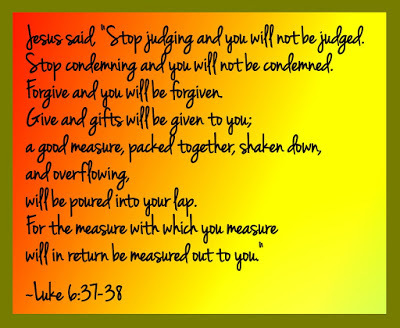 Don't judge. Don't condemn.
Don't judge. Don't condemn.Everybody is quick to say, "Of course not. We shouldn't judge anybody." Yet we don't really know what we're talking about.
There are lots of things to be said about this point. I just want to indicate the fact that, too often, what we mean by "being non-judgmental" is actually "being uninvolved."
We think "don't judge" means "don't take the risk of grappling in a real human relationship with a person who is different from us, much less a person who needs help." We talk about "tolerance" but what we mean is that we don't care about anybody beyond ourselves and/or our own group. Under the disguise of superficial sentimental expressions of mutual affirmation, we are growing more isolated from one another.
But Jesus says that instead of judging and condemning one another we must love one another, give of ourselves to one another, forgive one another. This has never been easy, and in today's world it is in some ways harder than ever.
We are still at the threshold of an emerging "new epoch" dominated by power, and we must endure all the tumultuous intensity of its unprecedented experiments in "stretching" the capacities of human persons and environments. Finding ourselves in this bewildering and conflicted ambient, many of us are confused about our own identity, afflicted by trauma, and desperate to protect ourselves.
God alone judges us, and perhaps we can better appreciate this as a blessing. Even as the Lord sees us entirely and scrutinizes our hidden faults, he also knows all the complex circumstances that constrain us and that can diminish somewhat (and even to a significant degree) our culpability.
This brave new world, with its unprecedented and ongoing multiplication of so many kinds of power, smashes and breaks people in the places where they are vulnerable. It's a world of constant mental strain, and those who cannot keep up with the pace of its relentless, absorbing expansion of forces—or at least manage the stress—must shift through the wreckage it leaves behind in themselves.
These are traumatic times. Not surprisingly, many of us are traumatized. Naturally, we are trying to protect ourselves, and we seek out various forms of isolation, motivated by a combination of fear and the instinct for survival.
A few of us can try to hold on strictly by ourselves; we are the intellectuals who analyze everything and commit to nothing. More often, we are isolated "together" behind the fortress walls of our tribes—our illusory substitutes for commitment and community—bound together by violence and fear and the desire to make war on others.
But the light of the Gospel shines even in times like these. The Gospel addresses our whole humanity, and its power not only brings eternal life but also offers the best hope of subordinating the vast scope of our power to the wisdom of an integral humanism and a deeper awareness of the dignity of the person.
Jesus says "stop judging" and "stop condemning," but at the same time he says, "Give..." which is akin to the exhortation to love, to suffer for the sake of justice, to lose ourselves for his sake so that we might truly find ourselves.
But he does not only exhort us. He draws us on the path that he himself has made through the cross to the resurrection.
 Perhaps the closest step in this journey for each one of us is expressed in the words of this text that echo the Lord's Prayer: "Forgive and you will be forgiven." Every time we pray the prayer Jesus gave us, we implore God our Father for the fulfillment of all reality and of our own lives: for our daily bread, for his will, for deliverance from evil, for the coming of his kingdom.
Perhaps the closest step in this journey for each one of us is expressed in the words of this text that echo the Lord's Prayer: "Forgive and you will be forgiven." Every time we pray the prayer Jesus gave us, we implore God our Father for the fulfillment of all reality and of our own lives: for our daily bread, for his will, for deliverance from evil, for the coming of his kingdom.In the midst of these pleadings, we make one petition in explicit relation to our own conduct: "Forgive us our trespasses as we forgive those who trespass against us."
The call to forgive others appears to be laden with psychological associations that can seem crushing insofar as we have been deeply hurt by others. But there is no simple formula for expressing how the psychological and emotional profile of forgiveness should play itself out in a person's subjective experience. Wherever we may feel ourselves to be, we can only turn to God and beg him to empower us to give him what he asks of us.
God always loves us first. He wants to heal us and to open our hearts to receive his forgiveness and share it with others. Jesus came for forgiveness of sins. He came with the readiness to pour out a good measure, an overflowing love by which we might love him and one another.
He promises that good measure, and even now he prompts us to ask him to change us, to make us capable of receiving it, to be freed for the outpouring of forgiveness. He will show us the way and he will carry us on his shoulders.
Published on February 25, 2019 20:59
February 23, 2019
Baseball in February, Woo Hoo!
It's February 23, 2019 and I am watching Washington Nationals (Spring Training) BASEBALL!
On TV! Live!⚾⚾⚾

Max Scherzer pitched two innings and I took some pics of the television screen (cuz I'm a nut
On TV! Live!⚾⚾⚾

Max Scherzer pitched two innings and I took some pics of the television screen (cuz I'm a nut
Published on February 23, 2019 18:17
February 22, 2019
Luigi Giussani: The Real Deal
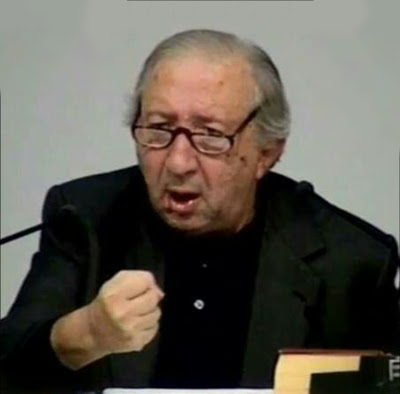 Monsignor Luigi Giussani died 14 years ago today after a lengthy illness.
Monsignor Luigi Giussani died 14 years ago today after a lengthy illness.It does seem like a long time since 2005. We are now well into the 21st century. A generation of children have grown up since those days (including our three oldest). Yet the impact of Father Giussani's long life of Catholic Christian witness continues to grow.
This picture shows Giussani as I remember him nearly thirty years ago, with his big earthy face and gravelly voice, his pile of books and his emphatic gestures, his wisdom and his passion: a "teacher of humanity," John Paul II called him. He certainly taught mine.
In an era full of religious pretenders, Giussani was "the real deal." He was a humble man and a true father in Christ, a man who spent a long and often challenging life pointing to Christ, whose personal counsel I will always treasure and whose witness continues to be vital to my own life.
Last month was the eighth anniversary of this blog. The very first post in January of 2011 was a quotation from him that I like to recall, not because it's "his words" but because it helps me remember who Jesus is, and why I exist, and what is really at stake in life - why it's worth it to live every day.
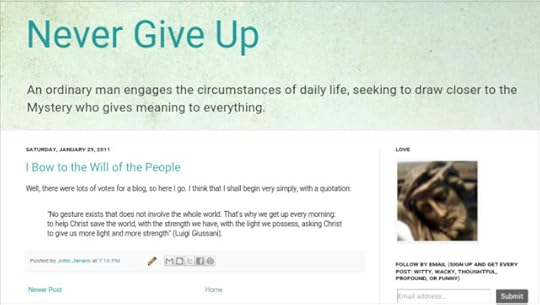
"He was touched, or better, wounded, by the desire for beauty. He was not satisfied with any beauty whatever, a banal beauty, he was looking rather for Beauty itself, infinite Beauty, and thus he found Christ, in Christ true beauty, the path of life, the true joy" (Joseph Cardinal Ratzinger [two months before he was elected Pope Benedict XVI], from the homily at the funeral of Luigi Giussani).

Published on February 22, 2019 20:47
February 21, 2019
February in Virginia: A Comedy in Three Acts
It's not unusual for any given forty eight hours to be so meteorologically crazy this time of year in our beautiful state. So the past few days haven't been surprising.
Nevertheless, I chronicled the ups and downs and precipitation changes in three posts on my social media accounts. In the end, there is some humor in it, and something like heroism from some plucky, all-weather plants.
[1] February 19:

[2] February 20:

[3] February 21:
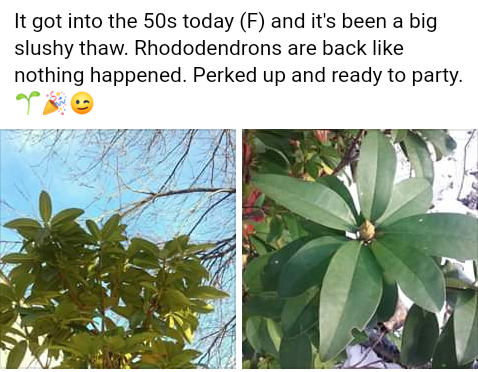
What can I say? The Rhododendron ROCKS!
Nevertheless, I chronicled the ups and downs and precipitation changes in three posts on my social media accounts. In the end, there is some humor in it, and something like heroism from some plucky, all-weather plants.
[1] February 19:

[2] February 20:

[3] February 21:

What can I say? The Rhododendron ROCKS!
Published on February 21, 2019 20:14
February 19, 2019
Rose Study Number 8

Here is my first "Rose Study" of 2019, which makes use of an original photograph and a wide variety of digital media tools for alterations, color, shading, texture, and setting. We call it "Rose Study Number 8."
Published on February 19, 2019 20:40
February 18, 2019
Why is it So Hard to "Ask For Help"?
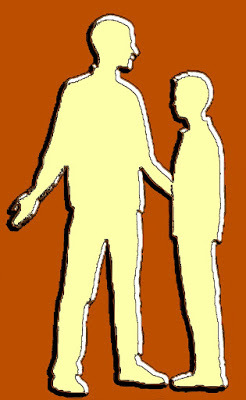 "There is no shame in 'asking for help,'" we always say to one another. And we are sincere in this conviction. We know this should be true, and we are learning more and trying harder to respond with awareness of this truth.
"There is no shame in 'asking for help,'" we always say to one another. And we are sincere in this conviction. We know this should be true, and we are learning more and trying harder to respond with awareness of this truth.And yet, so many people refuse to ask for help. There are lots of resources available, that provide various forms of assistance to people who find themselves impoverished by physical and/or mental sufferings. But too often we don't ask.
Why does it seem so hard to ask? Certainly, it's humbling to be open about our needs, especially the ones that are easily concealed. But sometimes we hold back and keep things inside - hiding or denying even very desperate circumstances - because we have this feeling that there's no point to it, because people can't give us what we really need. There is something real that underlies this feeling (even though it can also be proud or foolish to refuse to seek help for our practical needs).
In fact, the acts of giving and receiving help take place in the realm of interpersonal relationships.
"Asking for help" is really hard, not only because of our pride, but also because we know that no one can ultimately solve our problem. Our need for practical help is important, but it's not sufficient in human terms to just have our immediate practical needs taken care of without any experience of being engaged as persons.
There are reasons why people feel degraded by "depending on charity" and one of them is that they can feel reduced to mere objects of the energy of the generosity of others. And other people can use "the poor" as a means to feel satisfied with their own generosity (or their being "charitable").
It's important to realize that the poor know (on some level) when they're being used. They take what is given to them, but often they harbor resentment toward their benefactors. They feel used and robbed of their dignity.
That's why "help" shouldn't just be external (even when concrete needs are involved). Take a simple and obvious example: the need of the human person for food. Here we can see concrete ways to help people who lack food. Such people are obviously "poor," and we can take initiatives to help them even before they ask.
But is there the danger that such initiatives might fall short of being fully human?
We can feed the poor the way we feed a dog. We can even provide food with smiles and kind words, but it would still be like feeding our dogs if it is done without a vital awareness of our common humanity or the gifts and deeper burdens they have to share with us.
 But the benefactor may be perplexed here. What else can be done?
But the benefactor may be perplexed here. What else can be done?It's not possible to reduce to a simple pragmatic formula or set of rules how to respond to the sufferings and the needs of another human person. The human need for food (an example which seems so quantifiable) is always the need of a human person - it's a physical need, but also a need for something more.
Hunger has a story, a personal story. It's linked to other difficult and tragic circumstances in the vocational journey of a human person. It bears the wounds of desperation, exclusion, failure, and - all too often - injustice.
These are overwhelming problems, and they are personal to each of "the poor." Clearly, we must help these persons with love. But how?
The art of being human is a continual learning process, and perhaps we feel we don't know how to love persons in need (or how to love this particular person in the context of the help we give them for this particular need). But it's already the beginning of something when we realize the deep deficiency of our efforts to "do works of mercy" and thus begin to discover our own poverty.
It changes our perspective: we the "helpers" do not stand in any kind of personal superiority over the ones we help. The greatest need - to give and receive love - is something we all share.
For those of us rich in material things, skills, knowledge, energy, etc. this can be a surprising and humbling discovery. But this humility allows us to begin to see the person in need of help as a person humbled, a person like us.
Indeed, our needs and our sufferings are deeper than the reach of any projects or solutions. As persons we have to share one another's burdens - and that's hard for us in our culture to understand because it doesn't seem to yield a "product" that we can measure, it's beyond the calculus of "results," and it's messy and awkward because it's interpersonal.
Sharing our gifts and burdens is the "stuff" of relationships; it builds unity between persons in freedom. It engenders solidarity and compassion. It is the source of authentic human community.
Community is a reality that is lived, not a thing we can produce. Indeed, when people try to "make" community like a product, they inevitably make conflict. It turns into a constant fight over whose ideas about "how to do it" should be used. And that's the best case scenario; much worse is when a group or individual become dictators to whom everyone must conform.
If we want to build up an environment where people really do feel encouraged to "ask for help," we all need to be more open about our own suffering. When we admit that it's hard for us to do that, we have already begun. We begin to be open about the suffering that love entails: both active loving and the openness to receive love from others.
It's difficult for all of us to live this way, to live as persons in communion, to share one another's burdens. It takes patience and work, including patience with ourselves. This follows a path of "gradualness" - it's a complex human thing that grows "organically" (according to our growth in wisdom, not as the simple application of a technique or the imposition of an ideology). And, of course, it's something built up through respect for human dignity and freedom.
Finally, it is a life we receive from God. We must turn to Him to ask for help. He who is Love will form us in the ways of love.
Published on February 18, 2019 20:30
February 17, 2019
Roots That Reach The Stream

"Blessed is the one who trusts in the Lord,
whose hope is the Lord.
He is like a tree planted beside the waters
that stretches out its roots to the stream:
it fears not the heat when it comes;
its leaves stay green;
in the year of drought it shows no distress,
but still bears fruit." .
~Jeremiah 17:7-8
Published on February 17, 2019 14:00
February 14, 2019
A Year Later: The Faces of Parkland
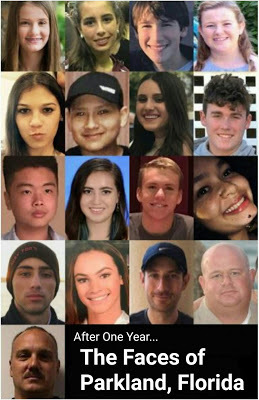 Here are the faces of the 17 students, faculty, and staff who died ONE YEAR AGO in the shooting at Marjory Stoneman Douglas High School in Parkland, Florida.
Here are the faces of the 17 students, faculty, and staff who died ONE YEAR AGO in the shooting at Marjory Stoneman Douglas High School in Parkland, Florida. It's a gesture of humanity to look upon their faces, honor their memories, and (at least) call to mind and heart the incomprehensible grief their families continue to bear.
For me, a moment of silence, sorrow for them, and anguish in the face of the violence that seems to grow more brazen and open and ruthless - in so many ways - in our poor world.
Published on February 14, 2019 19:25
February 13, 2019
Grammys 2019: A "Victory for Victoria"
I don't know if I have written about this remarkable young artist yet on the blog. She won two Grammys on Sunday night.

Tori Kelly's recognition is the best thing about the 2019 Grammy Awards. Her unique Gospel album is at times intense, at times introspective, at times serene, but the pervasive "vibe," if I may call it that (and why not?) is JOY.
I will write more about her. TK has more new Pop/R&B music coming out in the months ahead. Meanwhile Hiding Place is a beautiful and enduring event, a celebration of music that touches our souls and gets us to move our feet.
Thank you, Tori, and also Kirk Franklin and all of the incredible musicians and singers who participated in this superb project.❗

Tori Kelly's recognition is the best thing about the 2019 Grammy Awards. Her unique Gospel album is at times intense, at times introspective, at times serene, but the pervasive "vibe," if I may call it that (and why not?) is JOY.
I will write more about her. TK has more new Pop/R&B music coming out in the months ahead. Meanwhile Hiding Place is a beautiful and enduring event, a celebration of music that touches our souls and gets us to move our feet.
Thank you, Tori, and also Kirk Franklin and all of the incredible musicians and singers who participated in this superb project.❗
Published on February 13, 2019 19:00
February 11, 2019
Mary, Our Mother, Truly Cares For Us
 February 11 is the memorial of Our Lady of Lourdes and the "World Day of Prayer for the Sick." It's a day that has this special dedication, so that we might remember to pray for sick and suffering people every day, in particular those who have been entrusted to us. There are many kinds of healing that our merciful Mother Mary accomplishes in our lives, for we are all much in need of healing.
February 11 is the memorial of Our Lady of Lourdes and the "World Day of Prayer for the Sick." It's a day that has this special dedication, so that we might remember to pray for sick and suffering people every day, in particular those who have been entrusted to us. There are many kinds of healing that our merciful Mother Mary accomplishes in our lives, for we are all much in need of healing. Occasionally there are miracles. Usually, God's good and loving care, accompanied by Mary's maternal intercession, works mysteriously to bring us the profound healing we many not even know we need. His (and her) priority is always our ultimate, definitive destiny of eternal life. Still, Mercy embraces the integral good of the person, and the One who became human and loves us with a human heart is close to us in all our needs.
In His goodness He has also given us the gift of Mary's particular tenderness. The mother of our Savior is our mother. This does not imply that the love of Christ is "not enough" in itself for our salvation. Quite the opposite. Christ's love is super-abundant, and out of this immeasurable richness He associates Mary's maternal love in all that He does for us.
How beautiful, how intimately human it is, that Jesus - in making us His brothers and sisters - gives us His mother Mary to be our mother.
And she is truly a mother to us. She cares, specifically, for each and every one of us. We can bring everything to her, because we are her children, and she will deepen our confidence in the Lord and carry us through even the most inscrutable difficulties in life, keeping us close to her Son.
We are never orphans.
Published on February 11, 2019 20:45



